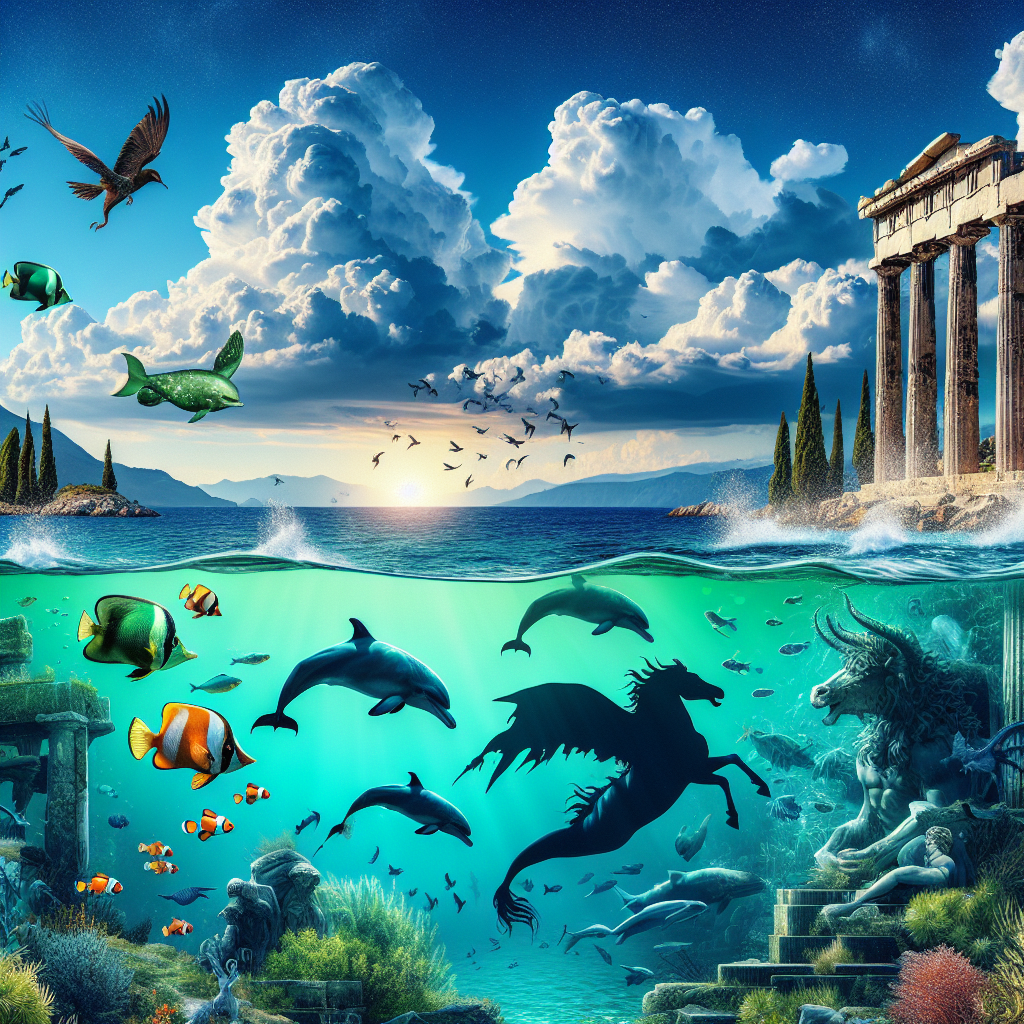Unraveling the Mysteries of the Aegean Sea: Myths, Legends, and Natural Wonders
The Aegean Sea, an enchanting expanse of crystalline blue nestled between the coasts of Greece and Turkey, has long enthralled and inspired those who gaze upon its shimmering surface. Rich in history, myth, and natural beauty, the sea has been a cradle of civilization and a setting for some of the most impressive tales ever told. From ancient myths to modern discoveries, the Aegean embodies a tapestry of cultures, stories, and natural wonders that are both breathtaking and mysterious.
Ancient Myths and Legends
The Aegean Sea is steeped in stories that have transcended generations. In ancient Greek mythology, it was a realm where gods and mortals intertwined. One of the most famous tales is that of Theseus and the Minotaur, which is set on the island of Crete, just south of the Aegean. Theseus sailed from Athens to rescue the Athenian youths sacrificed to the monstrous Minotaur, navigating the labyrinth of human fears and desires. His journey symbolizes courage and the struggle against the unknown, perhaps reflecting the very nature of the Aegean itself—both alluring and perilous.
Another iconic myth involves the beautiful goddess Aphrodite, who was said to have risen from the foam of the Aegean waves. Her association with love and beauty has rendered the Aegean Sea a timeless metaphor for romance and passion throughout literature and art.
The mysteries deepen with tales of the lost city of Atlantis, which was said to lie submerged beneath the Aegean’s waves. The allure of such legends continues to spark imagination and exploration, leading many to wonder what secrets lie beneath its surface.
Historical Significance
The strategic importance of the Aegean Sea throughout history cannot be overstated. It was the birthplace of the Minoan and Mycenaean civilizations, which laid the foundations for Western culture. The sea served as a vital trade route, connecting various cultures and facilitating the exchange of ideas, goods, and innovations. The maritime prowess of the ancient Greeks allowed them to build vast empires and spread their influence across the Mediterranean.
Archaeological discoveries in the Aegean, such as the ruins of ancient cities, shipwrecks, and artifacts, have revealed a wealth of information about the societies that flourished in its embrace. These artifacts tell tales of everyday life, trade, art, and even warfare, contributing to our understanding of human civilization.
Natural Wonders of the Aegean Sea
Beyond its rich mythology and historical significance, the Aegean Sea boasts breathtaking natural wonders. The archipelago comprises over 2,000 islands, each with its own unique charm, from the volcanic splendors of Santorini to the lush landscapes of Skopelos. These islands are not only visually stunning but are also critical habitats for diverse ecosystems, including numerous species of marine life and migratory birds.
Diving enthusiasts are drawn to the Aegean for its remarkable underwater landscapes, characterized by underwater caves, coral reefs, and ancient shipwrecks teeming with aquatic life. Snorkeling and diving in the Aegean reveal a world of color and vitality beneath the waves, showcasing the ecological diversity that thrives in this historically significant body of water.
The sea’s geological formations tell a story of tectonic activity, where fierce volcanoes have shaped islands such as Nisyros and Thera (modern-day Santorini). The volcanic caldera of Santorini, with its breathtaking sunsets and vibrant beaches, is considered one of the most picturesque spots in the world and serves as a testament to the dynamic forces that have sculpted the landscape over millennia.
Conclusion
The Aegean Sea remains a region where the past and present coexist in harmony, a landscape of myths and legends that invite exploration and discovery. Its azure waves continue to inspire artists, writers, and adventurers alike. As we unravel the mysteries of the Aegean, we come to appreciate not only its natural beauty and historical significance but also the timeless stories that have shaped its identity over centuries.
In a world increasingly driven by technology and globalization, the Aegean Sea stands as a reminder of the rich cultural heritage that thrives in the currents of history. It beckons us to explore its islands, listen to the whispers of its ancient legends, and marvel at the natural wonders that continue to inspire humanity’s quest for knowledge and beauty.
